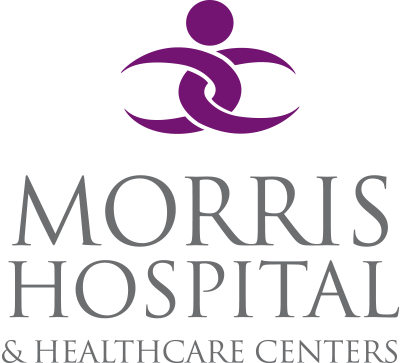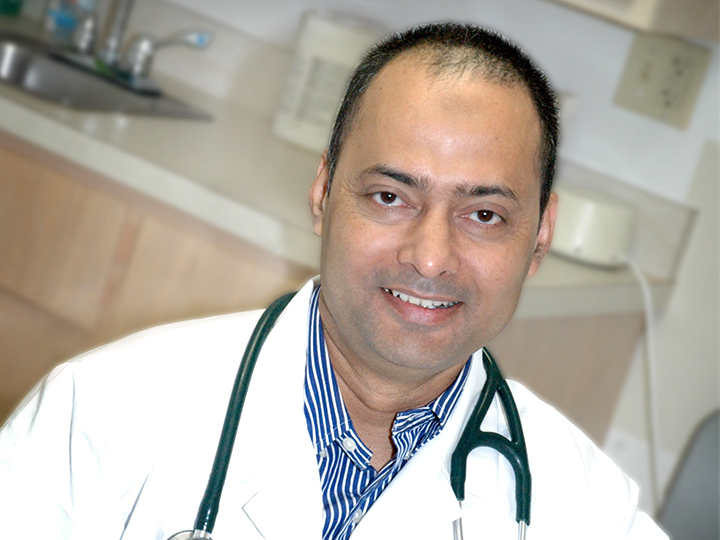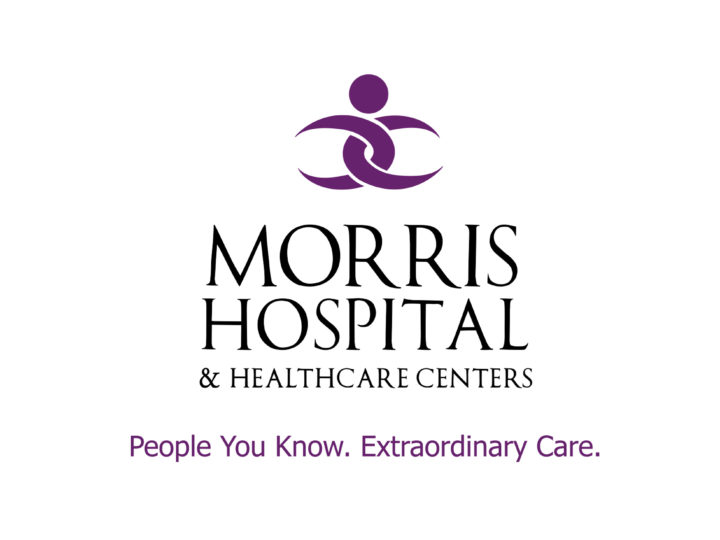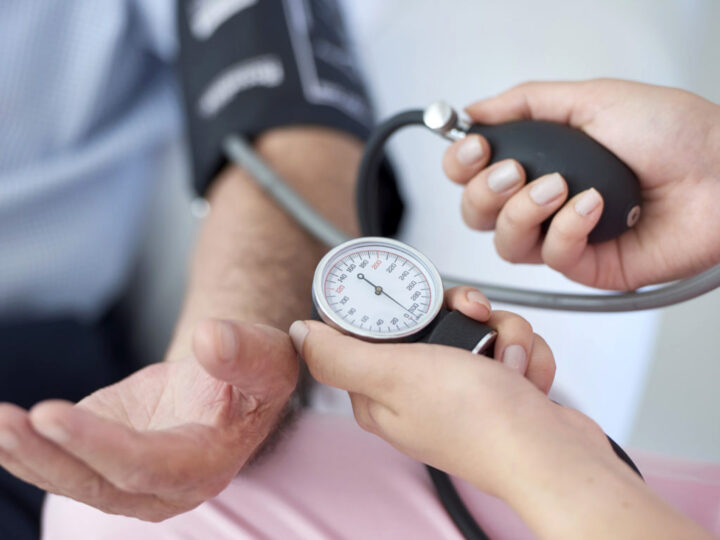There’s never a time to ignore warning signs of heart problems
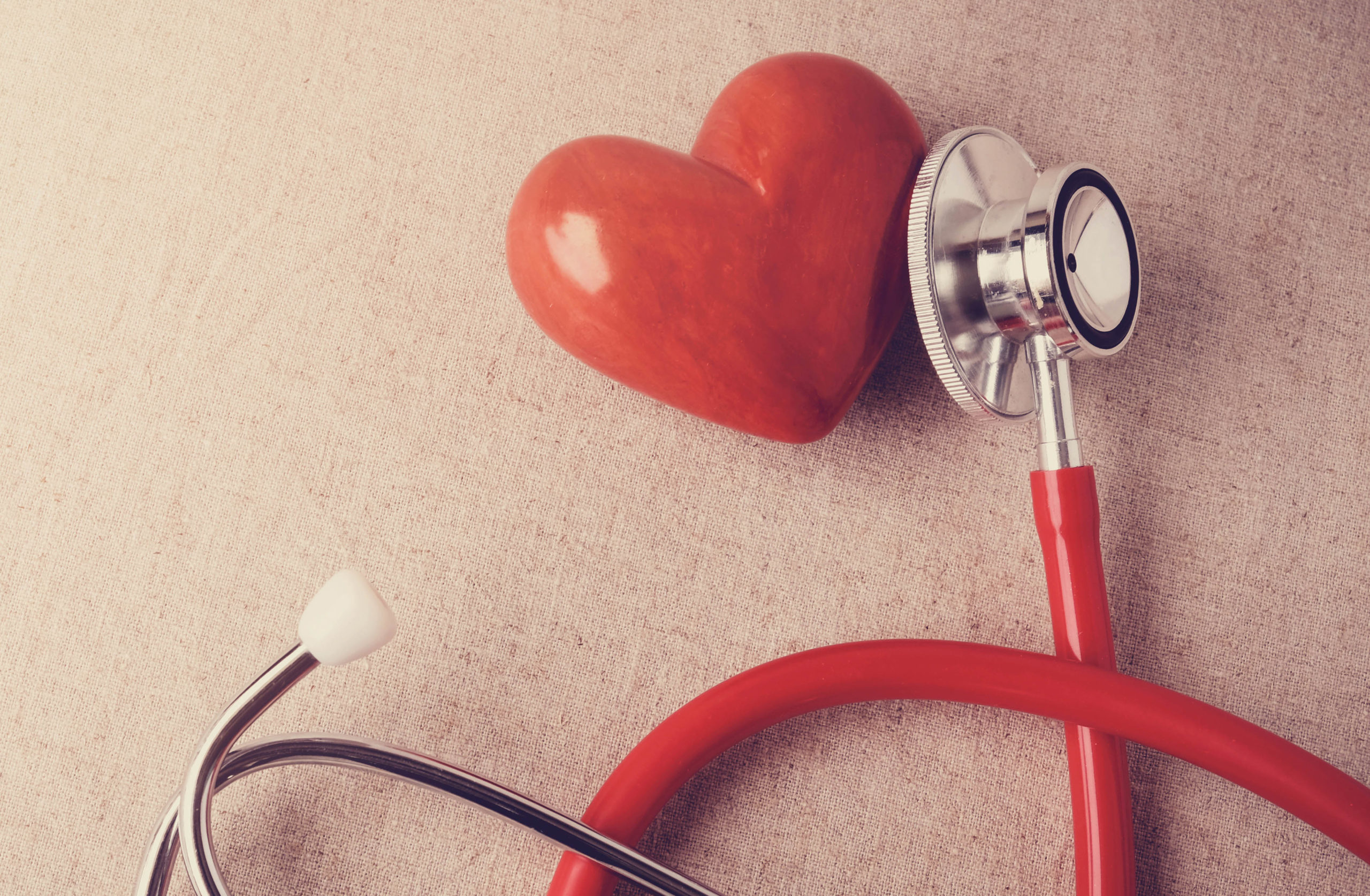
Chest discomfort. Pain or discomfort in one or both arms, the back, neck, jaw or stomach. Shortness of breath. Cold sweat, nausea, lightheadedness.
Chances are, you’ve heard these enough times to know that they are warning signs of a heart attack. Still, too many people dismiss their symptoms, delaying emergency medical care when minutes really do matter and fast action saves lives.
Read on to hear what Morris Hospital Cardiologist Athar Saeed, M.D., has to say about heart problems and why it’s important to get help if your heart is giving you signs that something’s not right.
Q: What are signs that someone might have a problem with their heart?
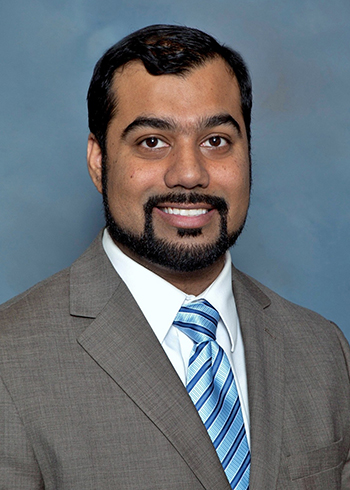 Dr. Saeed: When it comes to your health in general, it’s important to know what your “normal” is and to pay attention to any deviation from what’s normal for you. We have some patients tell us that they used to be able to walk around the house without any difficulty, but now they experience significant shortness of breath just walking to the bathroom. For those patients, that’s not normal and could be a sign that something’s not right. Another common symptom that brings patients into our cardiology practice is dizziness, which can sometimes be a sign of heart disease. Palpitations is another one and just a fancy way to say you feel like your heart is racing, or you can actually feel your heart beating. Palpitations can be a sign of a heart rhythm problem, especially in women. While there are many different reasons for tiredness, fatigue can be a sign of heart disease. Unfortunately, the older people get, the less obvious the symptoms of heart disease become. This is where it comes back to being in tune with your symptoms and your body and knowing what’s normal and what’s not normal for you.
Dr. Saeed: When it comes to your health in general, it’s important to know what your “normal” is and to pay attention to any deviation from what’s normal for you. We have some patients tell us that they used to be able to walk around the house without any difficulty, but now they experience significant shortness of breath just walking to the bathroom. For those patients, that’s not normal and could be a sign that something’s not right. Another common symptom that brings patients into our cardiology practice is dizziness, which can sometimes be a sign of heart disease. Palpitations is another one and just a fancy way to say you feel like your heart is racing, or you can actually feel your heart beating. Palpitations can be a sign of a heart rhythm problem, especially in women. While there are many different reasons for tiredness, fatigue can be a sign of heart disease. Unfortunately, the older people get, the less obvious the symptoms of heart disease become. This is where it comes back to being in tune with your symptoms and your body and knowing what’s normal and what’s not normal for you.
Q: What are the most common heart attack warning signs?
Dr. Saeed: Chest pain is certainly one of the most common. I have had some patients report chest pain on the left side of the chest and some with chest pain on the right side. Some have said the pain feels like it’s in the back of the chest. What’s most important to remember is that any type of chest pain is a concern, especially if the pain gets worse with exertion. Shortness of breath is another very common warning sign of a heart attack. Some people experience pain or discomfort in one or both arms, pain in the back, or the neck, jaw, or stomach. Cold sweat, nausea and lightheadedness sometimes occur with a heart attack.
Q: What should someone do if they experience any of the heart attack warning signs?
Dr. Saeed: Calling 911 is always the fastest way to get lifesaving treatment for a heart attack. No one should ever hesitate to use a hospital emergency department if they think they might be having a medical emergency, including a heart attack. That’s what we’re here for. If it turns out to be nothing, that’s okay. We’d rather have you come and find out it’s nothing than have you not come when you should have.
Q: Why is it so important to get to a hospital quickly if it’s a heart attack?
Dr. Saeed: At Morris Hospital, we are very fortunate to have a cardiac catheterization laboratory, which is unusual for a hospital our size. The technology allows us to use x-ray guidance to take pictures of the arteries directly around the heart so we can see if there are any severe blockages. We can open up most blockages with a stent right in the cath lab. If somebody is having a major heart attack, the most important thing is to get the artery open as quickly as possible because permanent damage starts occurring within 90 minutes. At Morris Hospital, we have a team on call to respond to heart attacks 24 hours a day, 7 days a week. If we get the call from the ER, we’re at the hospital and ready to go within 30 minutes. We can also implant pacemakers and defibrillators in the cath lab.
Q: Is there anything else you’d like to add?
Dr. Saeed: When it comes to heart trouble, the goal always is to catch the problem before there’s permanent damage. That’s what we’re here for. When people ignore symptoms, they’re putting themselves at risk for having permanent damage to their heart or an even worse outcome.
Dr. Athar Saeed is a board certified cardiologist with Morris Hospital Cardiovascular Specialists. Along with Dr. Syed Ahmed, Dr. Mary Menz, and Cardiology Nurse Practitioner Sherese Pruss, the practice has office locations in Channahon, Dwight, Morris, and Ottawa. For more information, go to morrishospital.org/cvspecialists, or call 815-705-1000.
